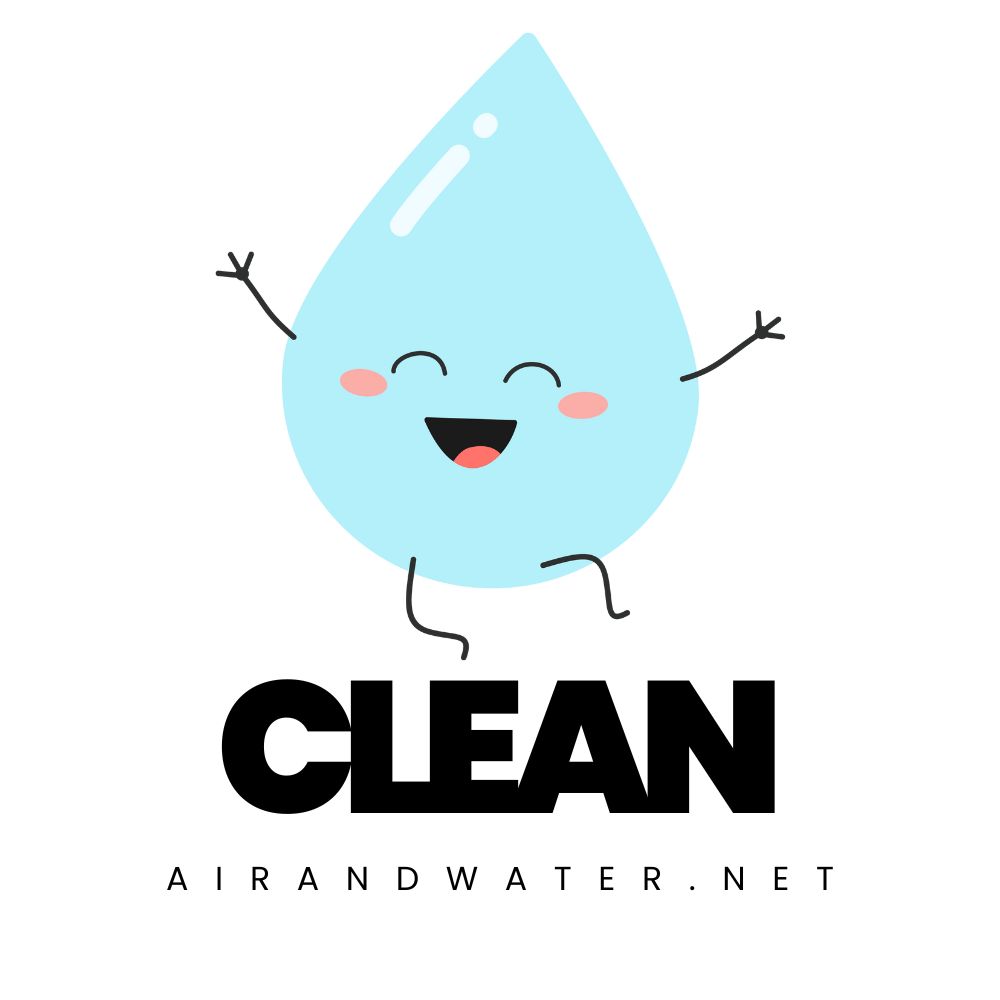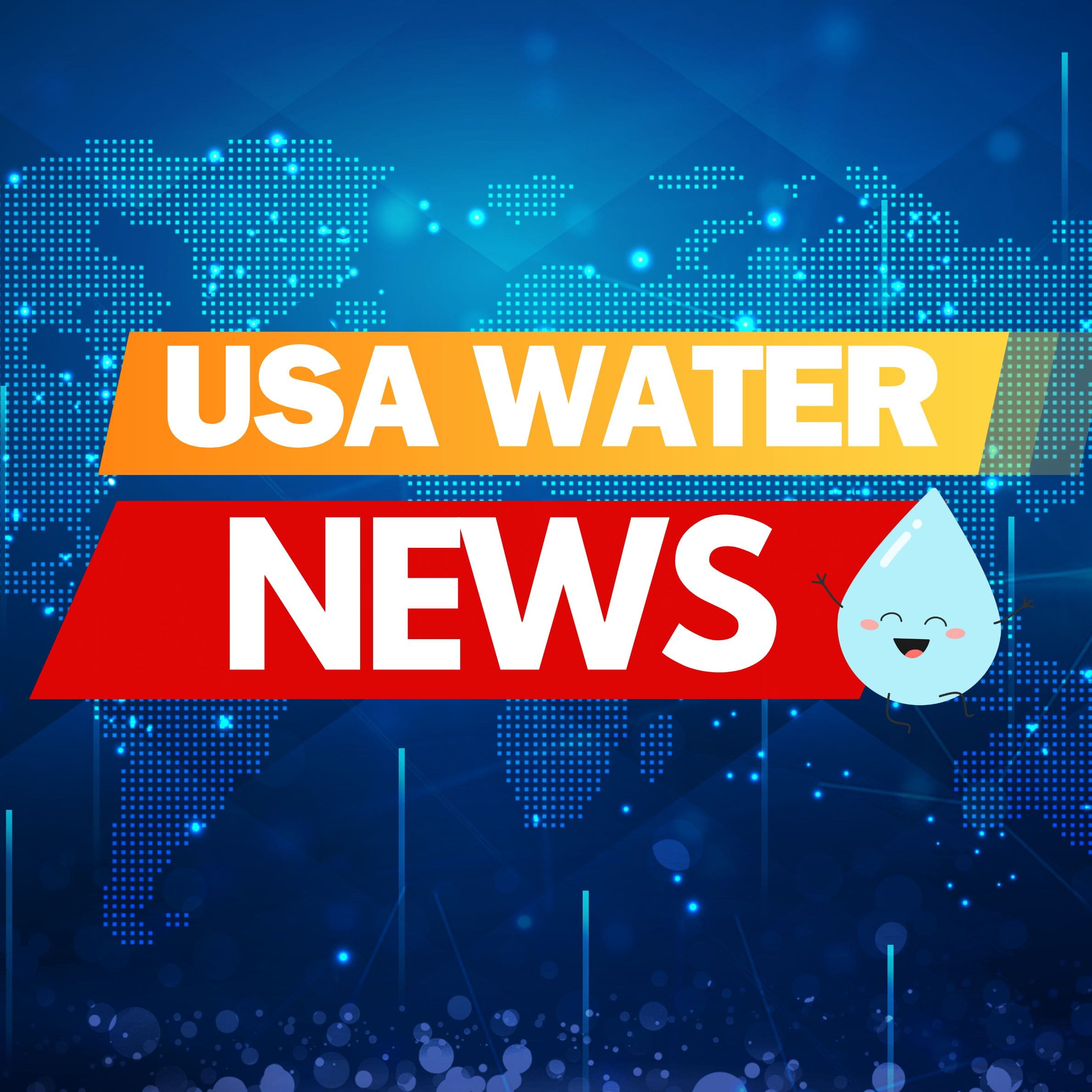Orlando Water Quality at a Glance
notable contamination
Is Orlando Water Safe to Drink?
Generally Safe with Concerns – Orlando water meets federal standards and is sourced from the protected Floridan Aquifer a quarter-mile underground. However, testing reveals concerning contaminants including 1,3-butadiene (a rare carcinogen detected only in Orlando nationwide), disinfection byproducts at elevated levels, hexavalent chromium, lead from aging pipes, and PFAS “forever chemicals.” The city uses advanced ozone treatment and conducts 3x more testing than required.
⚠️ Key Concerns for Orlando Residents
- 1,3-Butadiene: Rare industrial carcinogen detected only in Orlando water nationwide – unregulated by EPA due to rarity
- Disinfection Byproducts: TTHMs at 97 ppb (exceeds EPA limit of 80 ppb); HAA5 up to 544x higher than EWG health guidelines
- Heavy Metals: Lead levels up to 7.89 ppb from aging pipes; hexavalent chromium (Erin Brockovich chemical) present
- PFAS Contamination: “Forever chemicals” detected in regional studies; Florida has 1.16 million lead pipes (most in US)
Read the full report below for detailed analysis, city-specific data, and actionable recommendations for Orlando residents.
Orlando – Florida – Water Quality Report 2025: PFAS Testing, Infrastructure Concerns & Safety across your city
Orlando’s water system is managed by two primary utilities: the Orlando Utilities Commission (OUC) and Orange County Utilities, serving over 240,000 customers across a 200-square-mile service area. The system includes seven water treatment plants operated by OUC and multiple facilities managed by Orange County, delivering approximately 35 billion gallons of drinking water annually (about 96 million gallons daily). Orlando’s comprehensive water system features advanced treatment technology, particularly OUC’s innovative ozone treatment process, which was implemented through Water Project 2000, a five-year initiative that modernized the city’s water infrastructure.
Orlando draws its drinking water exclusively from the Floridan Aquifer, a natural underground reservoir located a quarter-mile below the surface that provides pristine groundwater naturally filtered through hundreds of feet of sand and rock. This high-quality source water undergoes additional treatment including ozonation, filtration, and disinfection to ensure safety and improve taste. Orlando’s water consistently meets or exceeds all federal and state safety standards, though the city faces challenges with hard water, which contains elevated mineral content that can affect appliances and plumbing. The utilities provide regular water quality testing (12,000 tests annually – three times more than required) and comprehensive customer assistance programs to ensure reliable water delivery throughout the greater Orlando metropolitan area.
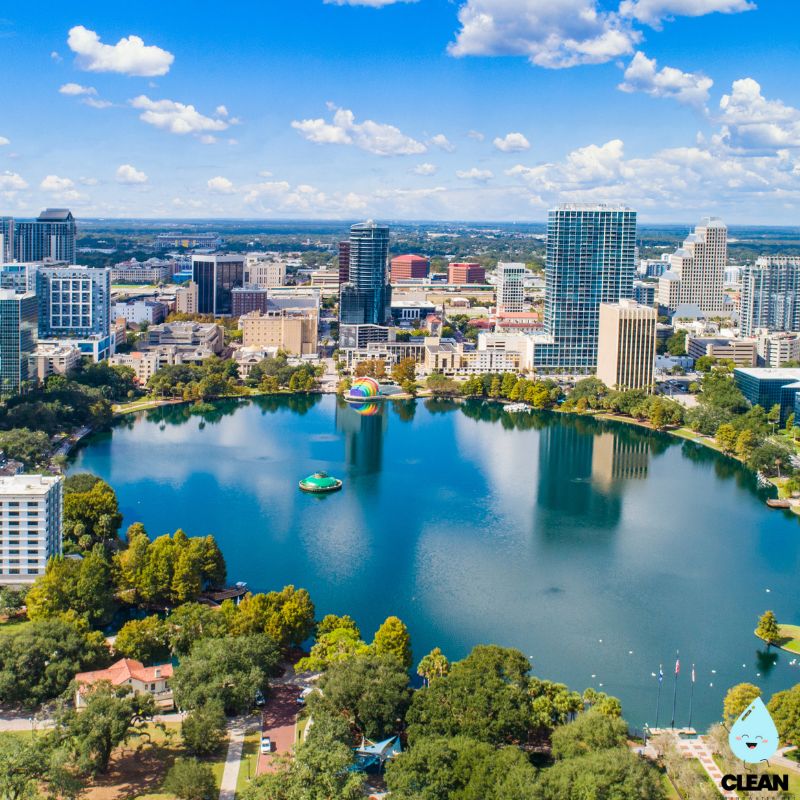
Orlando Water Quality: Current Status (2024-2025)
Latest Testing Results
- Lead Levels: Recent testing shows 90th percentile lead levels of 3 ppb (OUC) and up to 7.89 ppb (Orange County Utilities), well below the EPA action level of 15 ppb, though older homes may have lead service lines or plumbing that can contribute to higher levels.
- Testing Scope: Orlando utilities conduct approximately 12,000 water quality tests annually, which is three times more than required by regulations, ensuring comprehensive monitoring throughout the distribution system.
- Compliance Status: Orlando’s water meets all federal and state drinking water standards, maintaining compliance with EPA and Florida Department of Environmental Protection regulations, though some contaminants exceed health guidelines set by independent scientists.
Natural Aquifer Source
- Floridan Aquifer: Orlando’s sole water source is a deep underground freshwater reservoir located a quarter-mile below the surface, naturally protected from surface contaminants and providing consistently high-quality water.
- Natural Filtration: Rainwater undergoes a natural cleansing process as it filters through hundreds of feet of sand and rock before reaching the aquifer, removing many impurities.
- Water Hardness: Orlando water is classified as moderately hard water that can affect appliances and plumbing over time, typical of Florida groundwater sources.
Advanced Treatment Technology
- Ozone Treatment: OUC utilizes an advanced ozone treatment process that effectively removes hydrogen sulfide, improves taste and odor, and reduces the need for chlorine while providing superior disinfection.
- Multi-Stage Process: Water treatment includes ozonation, coagulation, flocculation, sedimentation, filtration, and disinfection to ensure safety and quality.
- Fluoridation: As of July 1, 2025, OUC stopped adding fluoride to drinking water per Florida state law (Senate Bill 700). Naturally occurring fluoride remains at an average concentration of 0.14 mg/L in the groundwater.
Infrastructure Management
- Treatment Facilities: OUC operates seven water treatment plants across the service area, all equipped with state-of-the-art security systems including armed guards, intrusion detection, alarms, cameras, and security fences.
- Distribution Network: Orlando’s water system includes an extensive network of water mains that deliver treated water throughout the metropolitan area.
- System Monitoring: Continuous monitoring systems track water quality and system performance, allowing for quick responses to any issues that arise.
Customer Protection Initiatives
Orlando utilities offer comprehensive customer support including water quality assistance, conservation programs, and emergency services through 311 and dedicated hotlines. Educational resources help residents understand water quality issues and best practices for water use. Orlando’s water utilities prioritize infrastructure improvements and maintain transparent communication about water quality through annual Consumer Confidence Reports. The combination of excellent source water from the Floridan Aquifer and advanced treatment technology ensures that Orlando residents receive high-quality drinking water that meets or exceeds all regulatory standards, though some contaminants of concern remain present.
Recommendations for Orlando Residents
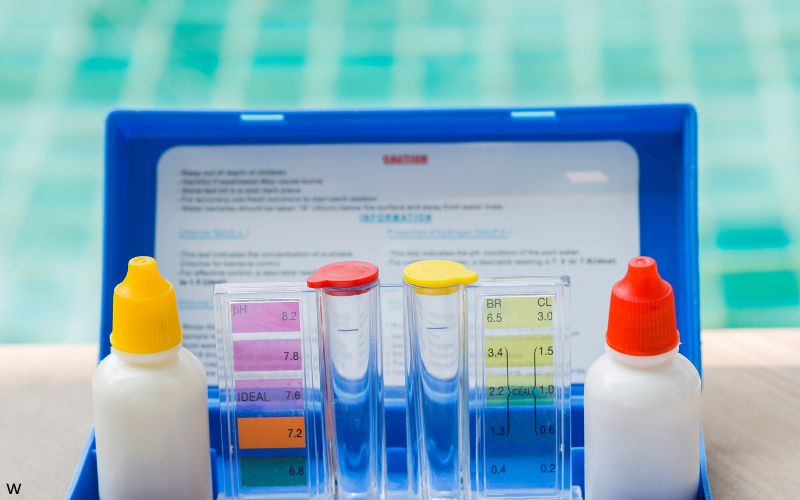
Request Water Testing
Contact your water utility (OUC at 407-423-9018 or Orange County Utilities at 407-836-5515) to request water quality testing, especially if you live in a home built before 1987 that may have lead plumbing components or if you have concerns about contaminants.
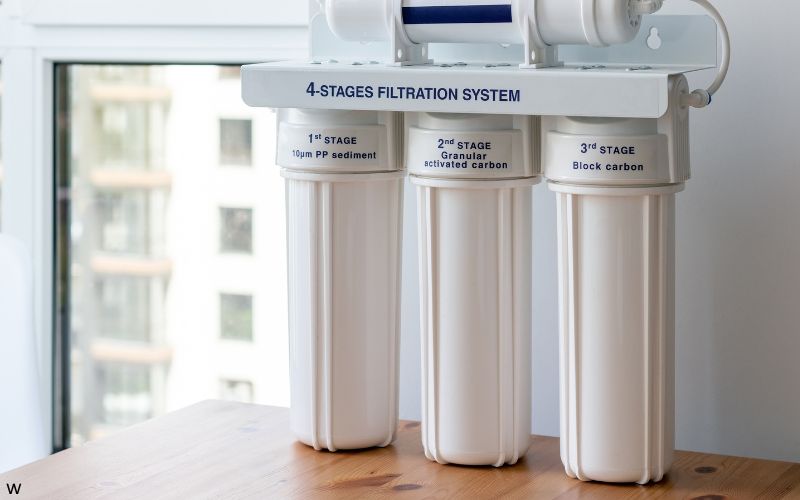
Consider Water Filters
Install NSF-certified filters (Standard 53) for drinking and cooking water if you’re concerned about lead, disinfection byproducts, PFAS, or the rare contaminant 1,3-butadiene. For hard water issues, consider a whole-house water softener system.
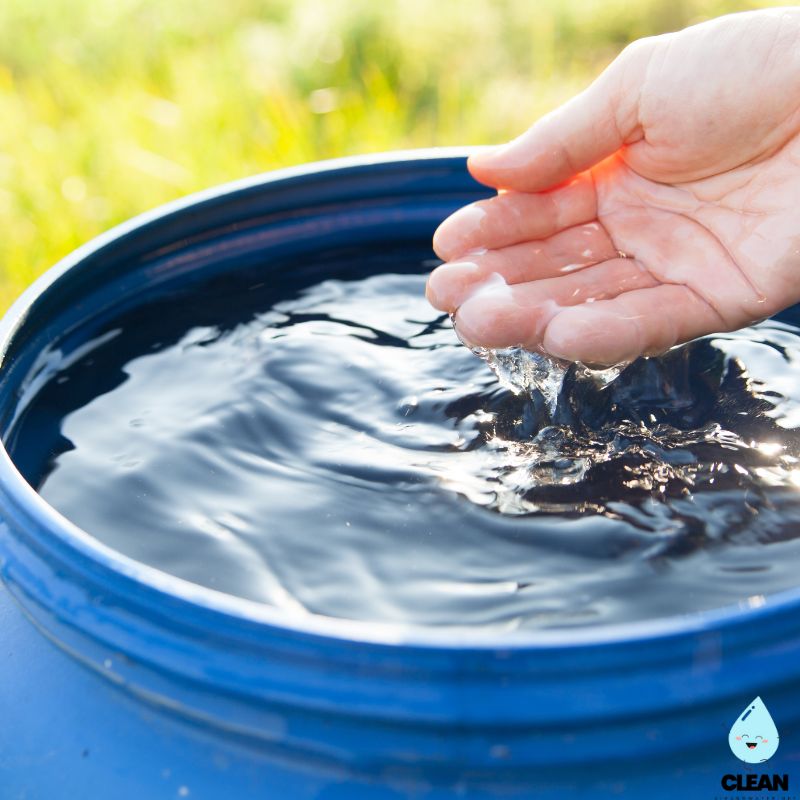
Practice Water Conservation
Follow watering restrictions and conservation guidelines, especially during dry periods. Water lawns only during designated hours (before 10 a.m. and after 4 p.m.) to reduce evaporation and maximize efficiency.

Flush Your Pipes
If water has been sitting in pipes for 6+ hours, run cold water for 30-60 seconds before using for drinking or cooking. This helps flush any metals that may have accumulated in standing water, especially in older plumbing systems with potential lead components.

Report Water Issues
Contact your utility provider immediately for water main breaks, pressure problems, or quality concerns. For OUC customers, call 407-423-9018. For Orange County Utilities customers, call 407-836-5515 or 407-836-2777 for emergencies.
Quality News About Your Water
Get the comprehensive water quality news coverage you need with our dedicated US Water News Service. From coast to coast, we deliver in-depth reporting and expert analysis on PFAS contamination, EPA regulatory changes, infrastructure developments, and emerging water safety issues affecting communities nationwide. While mainstream media only covers the biggest stories, we provide the detailed, ongoing coverage that helps you understand the full scope of America’s water challenges. Whether you’re a concerned citizen, water professional, or community leader, our daily updates and analytical insights keep you informed about the issues that matter most to public health and environmental safety.
Frequently Asked Questions
Is Orlando’s tap water safe to drink?
Yes, Orlando’s tap water meets all federal and state drinking water standards and is considered safe to drink. The water comes from the protected Floridan Aquifer a quarter-mile underground and undergoes comprehensive treatment including ozonation, filtration, and disinfection.
However, some contaminants of concern remain present, including 1,3-butadiene (a rare carcinogen detected only in Orlando nationwide), disinfection byproducts at elevated levels, and lead from older service lines and plumbing in homes built before 1987. Recent testing shows lead levels well below EPA action levels, but residents in older homes should consider using certified filters as a precaution if concerned about lead or other contaminants.
How do I know if my home has lead pipes?
To determine if your home has lead pipes or plumbing components:
1. Look at exposed pipes where water enters your home (usually in basement or crawl space). Lead pipes are dull gray, soft enough to scratch with a key, and won’t attract a magnet.
2. Contact your water utility (OUC or Orange County Utilities) to request information on your service line material.
3. Review your property records if your home was built before 1987, when lead pipes were banned.
If you suspect lead plumbing, consider having your water tested. Both OUC and Orange County Utilities offer water testing services to help identify potential lead issues. Florida has 1.16 million lead pipes – more than any other state.
Why does Orlando use ozone treatment?
Orlando utilities use ozone as the primary disinfectant, followed by chlorine for residual protection in the distribution system. This combination offers several advantages:
• Superior disinfection: Ozone is more effective against pathogens including bacteria, viruses, and parasites like Cryptosporidium
• Fewer byproducts: Ozone produces fewer harmful disinfection byproducts than chlorine alone
• Better taste and odor: Ozone effectively removes hydrogen sulfide, which can cause unpleasant taste and odor in water from the Floridan Aquifer
• Enhanced treatment: Ozone oxidizes minerals and organic compounds, improving overall water quality
OUC’s Water Project 2000 initiative modernized the treatment facilities to implement this advanced ozone technology, significantly improving water quality throughout the system.
Are there water restrictions in Orlando?
Orlando and Orange County maintain year-round water conservation ordinances:
Watering Restrictions:
• Residential properties with odd-numbered addresses may water only on Wednesdays and Saturdays
• Residential properties with even-numbered addresses may water only on Thursdays and Sundays
• No residential irrigation between 10 a.m. and 4 p.m. any day
• Non-residential properties may water only on Tuesdays and Fridays
Drought Response:
During severe drought or water supply emergencies, additional restrictions may be implemented by water management districts. Check utility websites or call 311 for current restrictions and conservation guidelines.
Contaminants of Concern
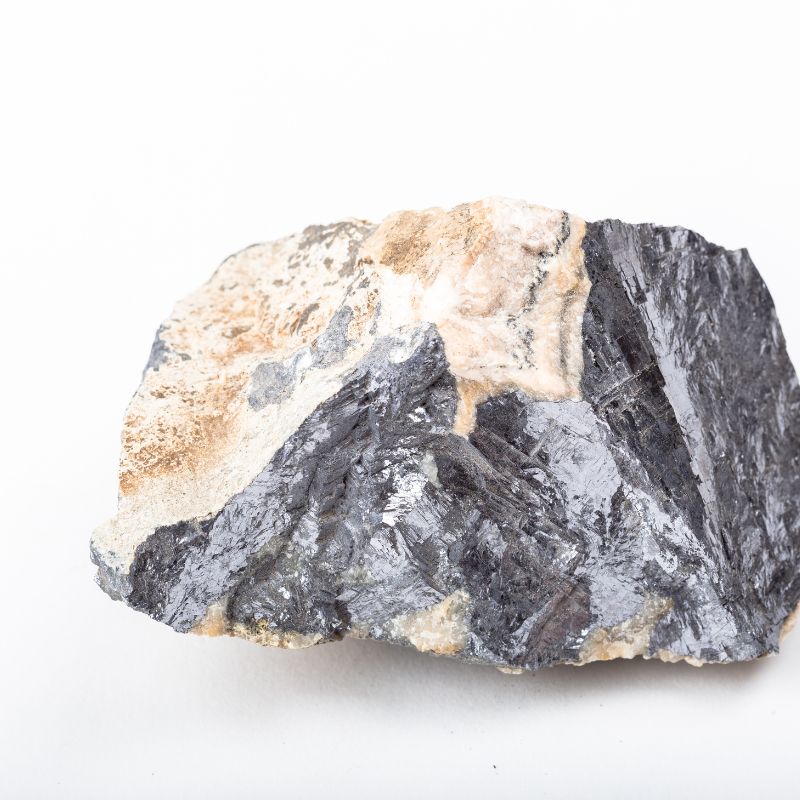
Lead
Source: Lead service lines and older plumbing fixtures in homes built before 1987; primarily an issue with home plumbing rather than source water
Health Effects: Developmental delays in children, reduced IQ, learning difficulties, kidney problems, cardiovascular effects in adults
Current Levels: 90th percentile value of 3 ppb (OUC) and up to 7.89 ppb (Orange County Utilities), well below EPA action level of 15 ppb EPA Limit: Action level 15 ppb, but no level of lead is considered safe

Disinfection Byproducts
Source: Form when chlorine (used after ozone treatment) reacts with naturally occurring organic matter in water
Health Effects: Potential increased risk of bladder cancer and reproductive effects with long-term exposure to elevated levels
Current Status: Haloacetic Acid levels up to 53.3 ppb (EPA limit: 60 ppb); Trihalomethane levels reported as high as 97 ppb in some areas, which exceeds the EPA Maximum Contaminant Level of 80 ppb. Some measurements show levels 544 times higher than Environmental Working Group health guidelines.
Please read – our information
The information presented on cleanairandwater.net is compiled from official water quality reports, trusted news sources, government websites, and public health resources. While we strive for accuracy and thoroughness in our presentations, we are not scientists, engineers, or qualified water quality professionals.
Our mission is to present water quality information in an accessible, real-world format that helps people understand what’s in their water and make informed decisions about their health and safety. We believe that complex environmental information should be available to everyone in a format that’s easy to understand.
We make every effort to ensure our content is current and accurate, but we cannot guarantee that all information is complete or error-free. This website should not replace official communications from your local water utility or health department. We always recommend consulting official sources for the most up-to-date information regarding your specific water system.
Clean Air and Water is not liable for any unintentional errors, omissions, or outdated information. The content on this site is provided for informational purposes only and should not be considered professional advice.
